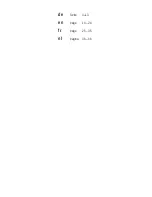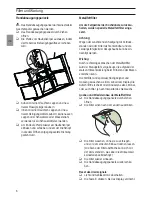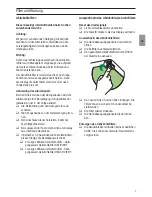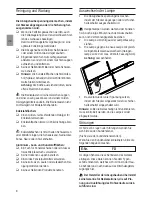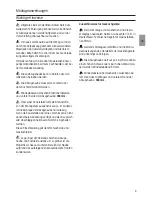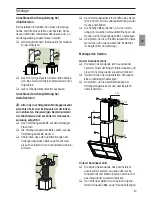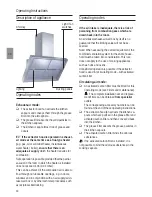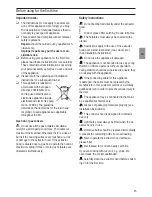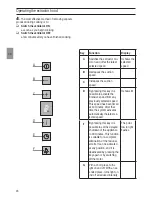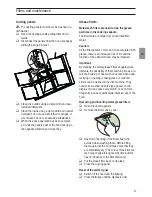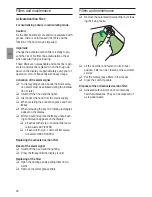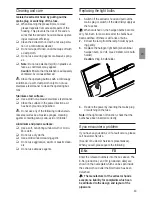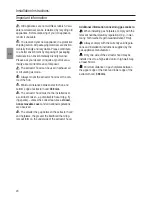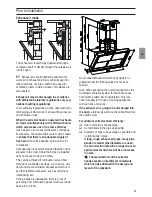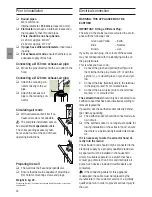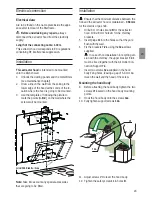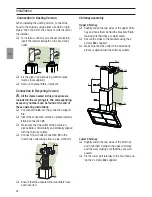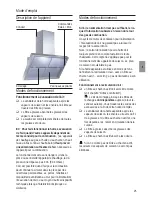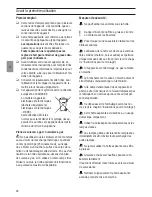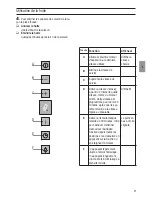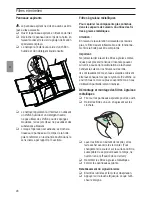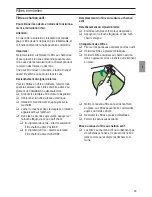
14
en
Description of appliance
Operating modes
If the air intake is inadequate, there is a risk of
poisoning from combustion gases which are
drawn back into the room.
An air-intake/exhaust-air wall box by itself is no
guarantee that the limiting value will not be ex-
ceeded.
Note: When assessing the overall requirement, the
combined ventilation system for the entire house-
hold must be taken into consideration. This rule
does not apply to the use of cooking appliances,
such as hobs and ovens.
Unrestricted operation is possible if the extractor
hood is used in recirculating mode – with activated
carbon fi lter.
Circulating-air mode:
An activated carbon fi lter must be fi tted for this
operating mode (see Filters and maintenance).
The complete installation set and replace-
ment fi lters can be obtained from specialist
outlets.
The corresponding accessory numbers can be
found at the end of these operating instructions.
The extractor-hood fan extracts the kitchen va-
pours which are purifi ed in the grease fi lter and
activated carbon fi lter and then conveyed back
into the kitchen.
The grease fi lter absorbs the grease particles in
the kitchen vapours.
The activated carbon fi lter binds the odorous
substances.
If no activated carbon fi lter is installed, it is
not possible to bind the odorous substances in the
cooking vapours.
Lighting
Light / fan
switches
Ducting panels
Chimney
Operating modes
Exhaust-air mode:
The extractor-hood fan extracts the kitchen
vapours and conveys them through the grease
fi lter into the atmosphere.
The grease fi lter absorbs the solid particles in
the kitchen vapours.
The kitchen is kept almost free of grease and
odours.
If the extractor hood is operated in exhaust-
air mode at the same time as a fl ue-type heater
(e.g. gas, oil or solid-fuel heater, instantaneous
water heater, boiler), ensure that there is an
adequate air supply which the heater requires for
combustion.
Safe operation is possible provided that the partial
vacuum in the room in which the heater is installed
does not exceed 4 Pa (0.04 mbar).
This can be achieved if the combustion air is able to
fl ow through non-lockable openings, e.g. in doors,
windows and in conjunction with an air supply/air-in-
take wall box or by other technical procedures such
as reciprocal interlocking.
Operating Instructions


